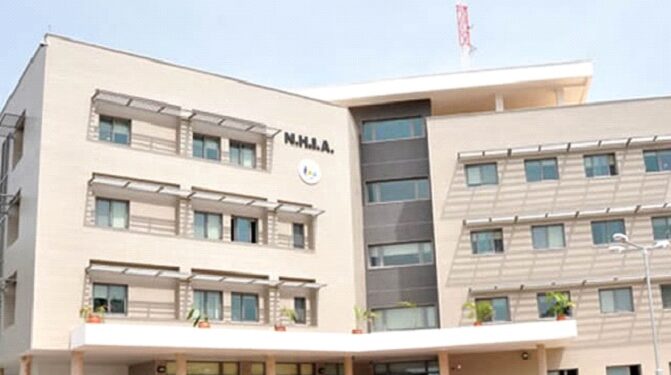The Private Health facilities Association of Ghana has called on government to address the dwindling fortunes of private health care facilities under the National Health Insurance Scheme (NHIS).
According to the association, poor healthcare financing has led to the collapse of the NHIS which is supposed to receive funds from govt for onward disbursements to service providers.
Speaking on Plan B FM’s ‘Ebaanosen’ with Aduanaba, Vice President of the association, Samuel Boakye Donkor questioned government’s commitment towards prioritizing healthcare issues in the country.
“Government’s commitment towards prioritizing healthcare continues to wane and this
reflects in the dwindling effort to adequately remit the Authority for disbursement to
service providers. The NHI Levy which constantly funds the sustenance of the NHIS is
under serious threat with the introduction of Capping and Realignment Act 2017 which
allows funds meant for healthcare to be diverted into other interests, and this has since
deprived the NHIA of the much-needed funding” he lamented
He also questioned government’s commitment to settling arrears owed service providers under the NHIS.
“Sadly, service providers can only confirm reimbursement up to the month of November,
2023 for which several health facilities were even excluded from the payment schedule,
despite such unfair treatment by Government, same health facilities are expected to keep
up with payment of salaries, bank loans at high interest rates, statutory charges, regulatory
fees, etc. it is for this reason that, the Private Health Facilities Association of Ghana
(PHFAoG) is desperately considering a course of action to vehemently protest
Government’s feeble commitment which is gradually leading to the collapse of the scheme” he added
Samuel Boakye also bemoaned the upsurge in prices of pharmaceutical products and other medical supplies which has skyrocketed due to due to Ghana’s economic struggles.
“The recent economic downturn has expeditiously destabilized the already unsteady prices
of medical consumables leading to high cost of healthcare for the ordinary healthcare
seeker especially individuals who fall within the impoverished population. If health
facilities can continue to provide healthcare unabated, clients will have to continue to
partially pay for the cost of their medical treatments. We have had course to complain
severally to the NHIA and Government of the growing cost of pharmaceutical products
and other medical consumables which have floated far above the tariff threshold of the
National Health Insurance Scheme (NHIS)”
The association has given the government and the NHIA up to 7th June, 2024 to pay all service providers at least, up to the month of
February, 2024 or face their wrath.










Discussion about this post